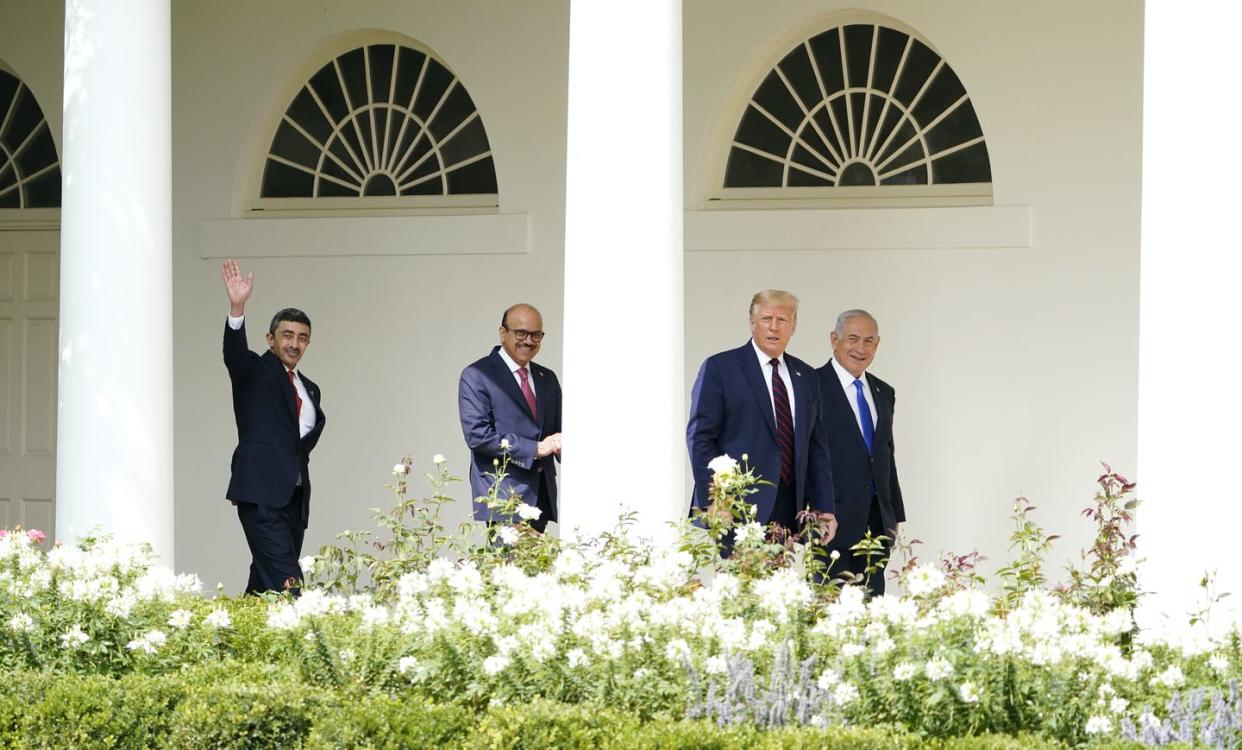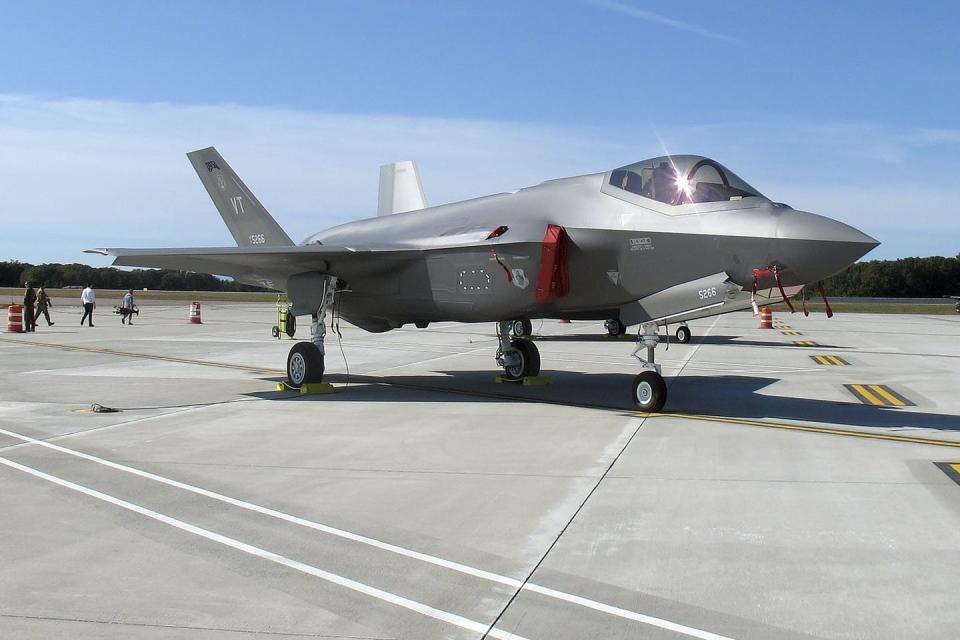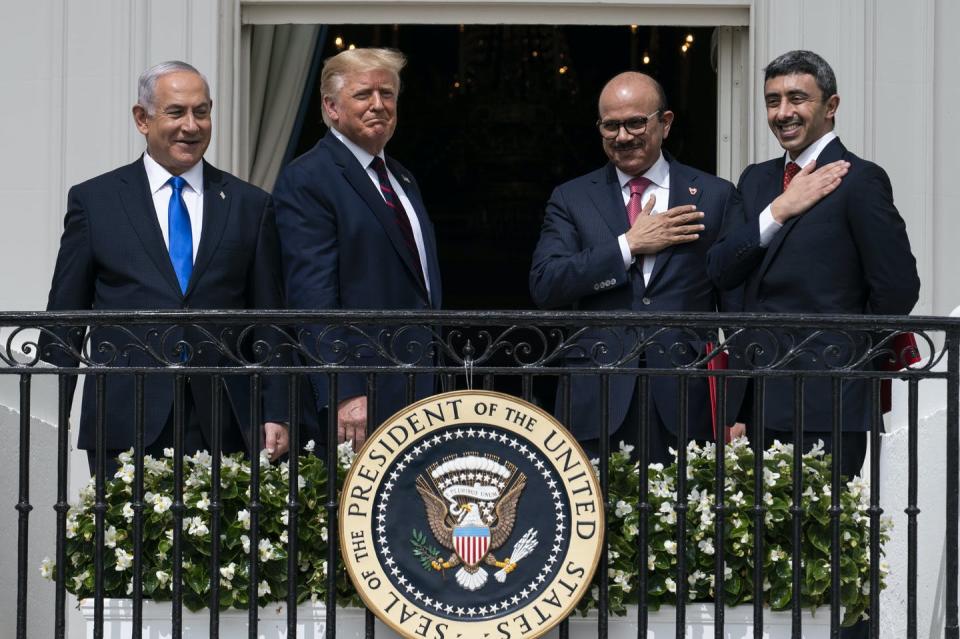How the Abraham Accords could create real peace in the Middle East

How will history books judge the so-called Abraham Accords, aimed at normalizing diplomatic relations between Israel and two Arab Gulf states, Bahrain and the United Arab Emirates (UAE)?
Will it be remembered as the declaration text envisions it: a critical milestone in the evolution of “peace, security, and prosperity in the Middle East?”
Or it will go down the annals of the Arab-Israeli conflict as one in a series of United States-brokered peace treaties that didn’t live up to the hype surrounding it.
The answer may well depend on the choices that the architects of the Abraham Accords make today.
Education needed
Two peace treaties signed in the past — Israel-Egypt in 1978 and Israel-Jordan in 1994 — may help determine whether the Abraham Accords will be able to deliver on their promises.
Bahrain, Israel and the UAE should ensure these accords are not merely an agreement among governments, but also among their citizens. Education can make this possible. The recent agreement between the UAE’s Mohammed bin Zayed University of Artificial Intelligence and Israel’s Weizmann Institute of Science to collaborate on the development and use of artificial intelligence is an important first step.
Education may seem a particularly inauspicious place to start. While education has an undisputed ability to enlighten people and cultivate a predisposition to peaceful solutions, it’s not the first thing typically considered by governments seeking quick results in international politics.
This is partly because the majority of foreign policy officials cut their professional teeth on the considerations of power politics and realpolitik.
International politics don’t follow the moral laws and standards of interaction that govern the behaviour of individuals in society. Rather, it’s power that really matters. The mantra “might makes right” is probably the most succinct summary of this sort of thinking. Therefore, education rarely wins the day in the calculus of foreign policy interests.
That’s why the news about the UAE’s bid to acquire the advanced F-35 stealth jet, and how that could influence the balance of power in the region, overshadowed other important developments resulting — or could result from — normalizing relations with Israel.

AI agreement
Chief among those developments is the co-operation in higher education between Israel and the UAE. Their agreement is designed to discredit the knee-jerk accusation that the accords are only aimed at confronting a mutual geopolitical threat: Iran.
In fact, there are other issues upon which the Gulf states and Israel see eye to eye, including the potential of technology to secure long-term stability.
Read more: 'Historic' Israel deal won't likely bring peace to the Middle East
For decades now, the Gulf states have undertaken economic diversification efforts to decrease their reliance on hydrocarbon wealth. Israel has the most technological gravitas in the region. The Israelis, in return, will benefit from access to markets for their hi-tech businesses. It’s a win-win situation, and both sides could use their newfound economic interdependence to convince other Arab neighbours in dispute to find peaceful resolutions.
This paints a rosy picture, and every peace-loving person probably hopes to see the future unfold this way. However, economic and geopolitical interests alone can’t guarantee genuine peace unless the ideas of tolerance and mutual respect are planted at the roots of the consciousness of citizens. Education is probably the best way to pursue this goal.
Science diplomacy
The educational accord signed by universities from the UAE and Israel is an important step in this direction. It offers opportunities for science diplomacy and dialogue from which people may find common ground and form new shared moral understandings. It also demonstrates that both countries are committed to peace.
People of course don’t change their positions overnight simply because of conversations in the study hall. But when these events recur, they offer opportunities for interaction, discussions, the re-examination of values and to identify collaborative projects that could strengthen civil society relationships among countries.

In the past, education was used to ensure that the Arab-Israeli conflict remained in the foreground of people’s thinking, weaving it into the fabric of their domestic and foreign policy at key junctures.
Almost all the revolutions that changed regimes in the Arab world in the 1950s and 1960s used the tensions between Israel and the Arab world in one way or another to justify regime change.
Mullahs stoked Arab-Israel tensions
The mullah regime in Iran is no different in that it also employed the Arab-Israeli conflict to advance its political agenda.
When the mullahs seized power in Iran in 1979, they jumped on the bandwagon, and not because it necessarily benefited their people. It was because the religious establishment found the Arab-Israeli conflict a convenient way to gain political leverage and animate their rather messianic vision of exporting the revolution.
What did all these so-called revolutionary regimes had in common? Two things.
The first was the emphasis on appearing to be helping Palestinians, even though it was insincere. The second was the removal of human rights by undermining education and development. Instead, they gave their people a common enemy via the Arab-Israeli conflict.
Opportunities for dramatic change rarely arise in the Middle East. But now is such a time. From a combative political atmosphere, some new thinking has emerged.
The need for change is apparent, but most efforts are following a top-down, government-level approach. Education, however, at the grassroots level can help a peaceful co-existence percolate and create connection, based on a shared belief in the unity of God found in both Judaism and Islam.
This is a corrected version of a story originally published on Oct. 8, 2020. The earlier story said there was co-operation in higher education between Israel and Bahrain instead of Israel and the UAE.
This article is republished from The Conversation, a nonprofit news site dedicated to sharing ideas from academic experts. It was written by: Edmund Adam, University of Toronto.
Read more:
Edmund Adam does not work for, consult, own shares in or receive funding from any company or organisation that would benefit from this article, and has disclosed no relevant affiliations beyond their academic appointment.


